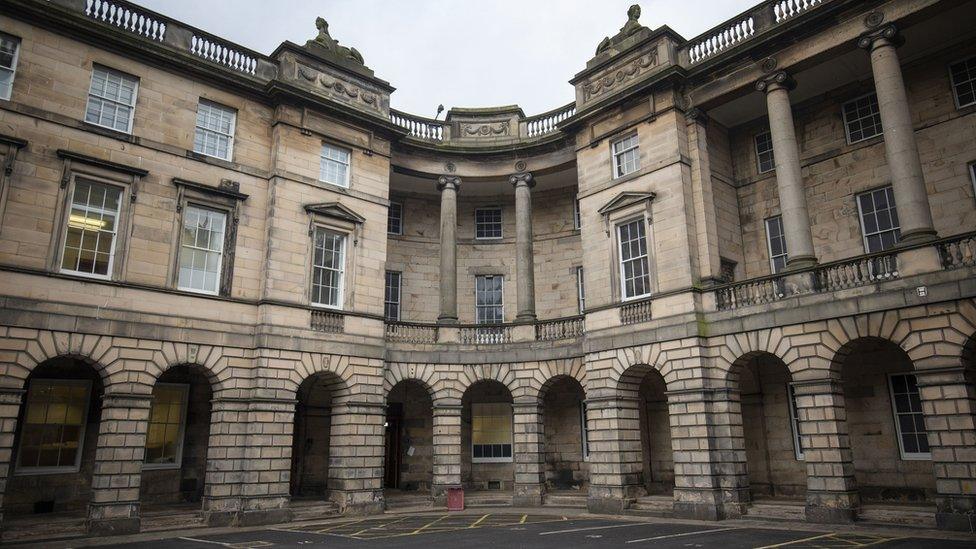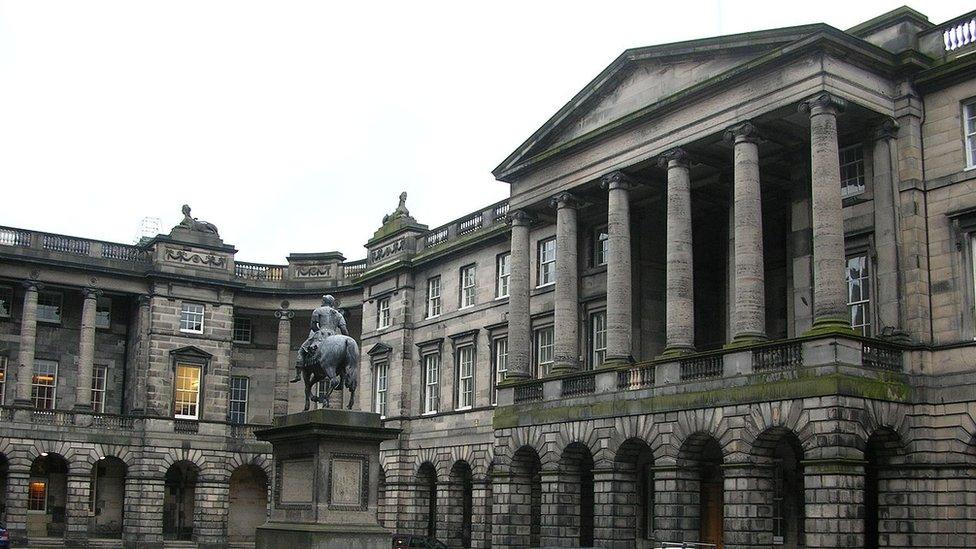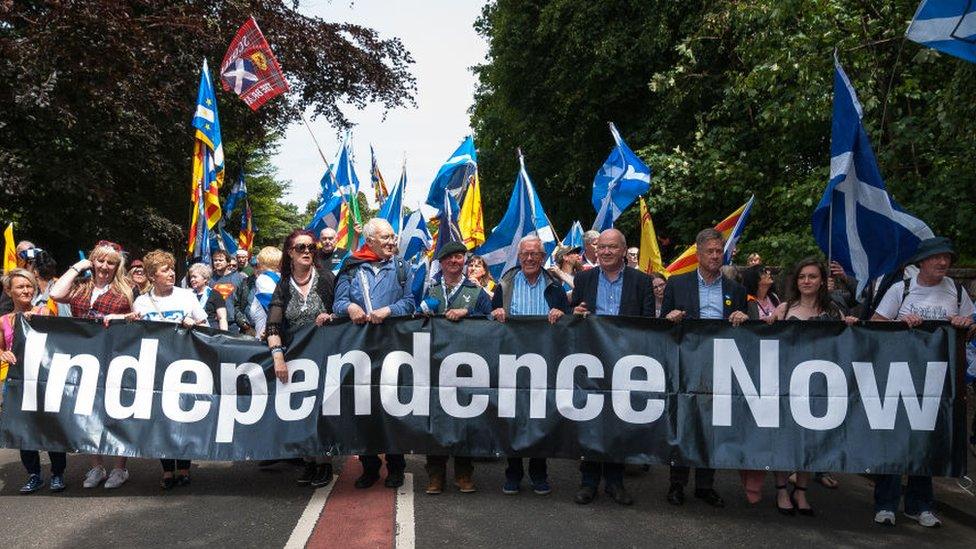Indyref2 case dismissed as 'hypothetical' by court
- Published

The case was heard at the Court of Session, although it is being conducted remotely
A case brought by a political campaigner on whether Holyrood could unilaterally hold an independence referendum has been dismissed.
Martin Keatings brought the case before the Court of Session on behalf of the Forward As One group.
But the judge dismissed the case, calling it "hypothetical, academic and premature".
Mr Keatings wanted the court to declare that the Scottish Parliament had the power to legislate for another vote.
But lawyers acting for the UK government argued that he didn't have the "standing" to bring the matter to court.
They told Lady Carmichael that Mr Keatings wasn't a member of the Scottish Parliament and wasn't "directly affected" by the policy or to the answer to the question.
In a judgement issued by the court , externalon Friday, Lady Carmichael agreed with the submissions made by the UK government with regard to Mr Keating's standing.
However, Lady Carmichael did not make a ruling on the competency of the action.

She said the action was "hypothetical, academic, and premature, and the pursuer lacks standing to bring it".
Lady Carmichael continued: "For the reasons given above, I would have reached the same conclusion even if a draft bill were available for consideration.
"I express no separate conclusion in relation to the proposition that the declarators sought are too vague. It is unnecessary to do so in order to dispose of the action."
Section 30 order
Many constitutional law experts believe that Holyrood can only hold an independence referendum if it obtains permission from Westminster. They say the legal mechanism for this lies in section 30 of the Scotland Act 1998.
The previous vote in 2014 was underpinned by a section 30 order - an agreement between the UK and Scottish governments, before legislation was passed by MSPs.
In it Scotland voted to remain part of the UK by 55.3% to 44.7%.
This action proceeded to court as the UK government maintains that there should not be another independence vote for "a generation".

The Forward As One group obtained a legal opinion in December 2019 from advocate Aidan O'Neill QC.
He concluded that it would be lawful for the Scottish Parliament to call for an independence referendum without the UK government's position.
The group raised more than £200,000 to pay for the legal fees to bring the case to court.
At proceedings in the Court of Session last month, Mr O'Neill said Mr Keatings was representing the public interest in the action.
Mr O'Neill added an answer on the issue "is absolutely required in order to inform votes of ordinary citizens in forthcoming Scottish elections".
Mr Keatings is standing as an independent candidate for Mid-Scotland and Fife in May's election.
David Johnston QC, acting on behalf of the Advocate General - the law officer who advises the UK government on Scots law - said that a pursuer in the Court of Session has to be directly affected in the action.
He said Mr Keatings did not meet this requirement.
Mr Johnston also said there is "nothing anti-democratic" in denying Mr Keatings's standing.
However, on Friday, Lady Carmichael said the courts would only intervene "to determine allegations of unlawfulness".
She added: "Where, however, there is no allegation of unlawfulness, and the court is asked for a determination as to the state of the law in an area which is the subject of current political debate and controversy, it will be important to ensure that the question of whether an answer is required in order to protect the rule of law is addressed with rigour."
Following the ruling Mr Keatings said he felt upbeat and he would appeal Lady Carmichael's decision to the Inner House to the Court of Session.
Related topics
- Published19 December 2019

- Published21 January 2021
